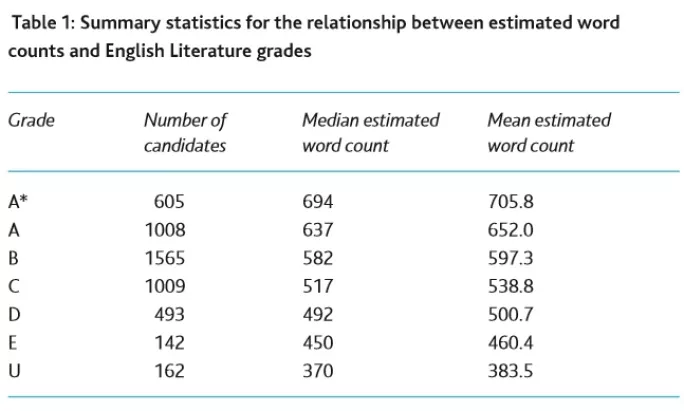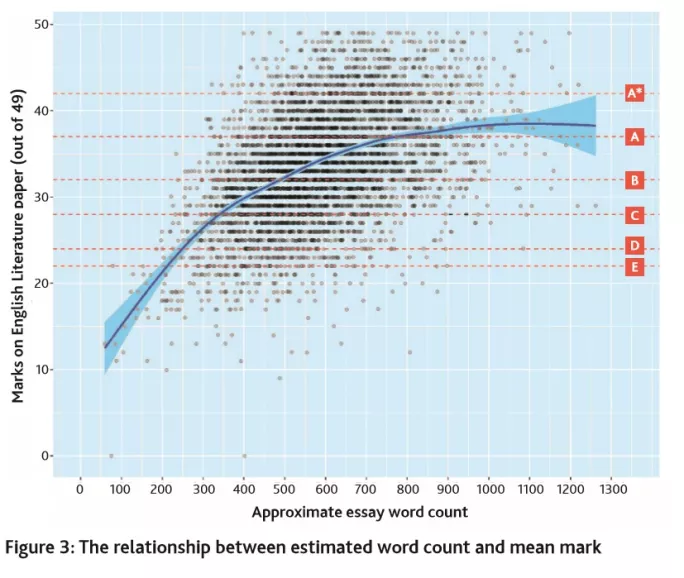There is no benefit in students writing extremely long answers in their GCSE exams, as fairly short answers can still lead to top marks, according to research from exams group Cambridge Assessment.
A new study has found that the relationship between essay length and the mark awarded flattens off beyond 700 words - which suggests that “quantity does not trump quality”.
For example, two candidates wrote more than 1,200 words - six complete pages of writing - in their GCSE English Literature exam in 2014 but they were only awarded a grade C.
And nine candidates awarded an A* had a word count below 400 - fewer than 2 and a half pages - showing “that it is possible to achieve the highest grades with fairly short answers”.
Researchers used computer processing of digital images of 5,000 exam scripts from a 45-minute OCR GCSE English Literature exam in 2014 to look at the link between word counts and grades achieved.
There has been little research in this area up until now - partly because the technology didn’t exist.
The Cambridge Assessment report How much do I need to write to get top marks? did also find, however, that nearly all responses of fewer than 200 words resulted in a grade U.
And no candidate was awarded a grade better than a grade B without writing at least 300 words.
Candidates achieving the highest grades did tend to write more, but a longer answer was by no means a guaranteed path to high marks, the research found.
Even for the longest essays, the average mark achieved by candidates never reached the top A* grade boundary.
Researcher Tom Benton, author of the report, concluded that candidates answering a 45-minute question should aim to provide at least two pages of writing if they want to achieve high grades.
But he added: “Beyond a certain essay length, the relationship between writing more words and achieving more marks flattened off.
“Thus, there is no evidence that writing extremely long answers makes a substantial difference to grade outcome, showing that quantity certainly does not trump quality.”
Want to keep up with the latest education news and opinion? Follow Tes on Twitter and Instagram, and like Tes on Facebook






